My Mother-tongue: Shahpuri Punjabi
Before our independence in 1947, the undivided Punjab was at least eight times larger than the present day Indian state of that name. A large chunk went to Pakistan, and what was left was divided into three states, Punjab, Haryana and Himachal Pradesh. In 1911, the state was so noteworthy that when Gurudev Tagore wrote an immortal song, he began the description of India with the words, “Punjab, Sindh, Gujarat, Maratha…”
Punjabi language had dozens of dialects. The language spoken in the land of my birth is known as Shahpuri. The term derives from Shapur which is a city on the eastern bank of river Jhelum, opposite Khushab. For a long time, this was a very important town, but when Sargodha was developed, Shahpur lost its political significance. However, the dialect continues to retain its name. Some of the other prominent Shahpuri speaking towns are Khushab, Layalpur (now known as Faisalabad), Sahiwal, Lalian and Mianwali. For those who belong to that part of the country, I am giving below a map of that area.
Shahpuri speaking areas
The complete picture of the various dialects of Punjabi is given below for ready reference:
Major dialects of Punjabi on both sides of the border
The Radcliffe Committee
We, in the Punjab had lived together for several centuries. Our religious beliefs were different, but the language united us. Most of the social customs were very similar. All the Muslims were converts from the local inhabitants, since we know for sure that none of them is an immigrant from Arabia or even Afghanistan. And they lived in complete harmony. In our village, Farooka, the most prominent leader was Mian Allah Yar Kalyar, and he was respected by everyone. The land was ruled by the Mughals for at least two centuries, and then it came under Maharaja Ranjit Singh for three decades, before the British established their empire. These political changes made very little difference to the lives of our ancestors. We spoke the same language and observed analogous social customs. The economy was agrarian, and most men worked on the fields. Women bore children and managed the households. ‘Purda’ (veils) was observed by all females, irrespective of faith.
The communal riots which began in around 1931 in the towns came as a shock. And when we learnt of the ‘partition’ most people did not believe that it would result in transfer of population and violence of that magnitude. What happened in 1947 was incredible and preposterous. The change of that enormous magnitude was the result of the deed of just one man, assisted by a few nameless members of the ‘boundary commission’. His name was Sir C Radcliffe. History records the story as follows:
“Sir Cyril Radcliffe arrived in India on 8th July 1947 and was given five weeks to work on the border. Upon meeting with Mountbatten, Radcliffe traveled to Lahore and Kolkata to meet his Boundary Commission members, who were primarily Jawaharlal Nehru representing the Congress and Muhammad Ali Jinnah representing the Muslim League. Both parties were keen that the boundary be finalised by 15th August 1947, in time for the British to leave India. As requested by both Nehru and Jinnah, Radcliffe completed the boundary line a few days before Independence, but due to some political reasons the Radcilffe Line was only formally revealed on 17th August 1947, two days after Independence”
The line which they drew on the western side of the map in those five weeks is shown below:
The Radcliffe Line
The Radcliffe Line on the Ground
The Indo-Pak border became sensitive soon after the partition. It was therefore fenced all along from the Punjab to the coastline, where the line ends. A picture of the fencing is given below:
Fencing on the Indo-Pak Border
A picture of the Radcliffe line as seen from a satellite. This is one of the few man-made boundaries visible from the space due to the floodlights
The Aftershock
We were unceremoniously thrown out of our houses. Amongst the many things we left behind was the ‘Shahpuri’ dialect. Since we got scattered all over India, the dialect was used only when we spoke to the members of our own family. And slowly, just as the seed takes to the soil, our language changed. I was a little over six years old then, but those words and their diction are still embedded in my psyche. Today, seven decades after the event, whenever I hear the Shahpuri dialect, my soul yearns to hear the tongue.
I have retained contacts with some friends on the other side of the border. Most of the educated men of our village have migrated to towns like Lahore and Rawalpindi, but the great majority of the rural folks are where they were. Recently, someone sent me a video clip of a rustic Shahpuri ‘muzera’ (landless farmhand). The two-minute interview he has given to a TV channel left me stunned and aghast. I want you to see it for yourself. The link is given below. Please click on it and listen to the words carefully:
My Analyses of the Social Consequences of this Outlook
I was dumbfounded when I heard what the man has said. He has no idea of what he seems to be doing. His wife and even the children believe that the head of the family is doing the right thing. Producing a brood of children appears to be a noble deed. Whether they receive education and other creature comforts is of no consequence. When I compare this with what I see in our villages, I am struck by the difference in the attitude. Even the poorest of the poor want to see their children educated, and the family planning concept has percolated to the very bottom of the social spectrum.
When we parted company in 1947, we were an integrated culture, but after seven decades, we are two entirely different people, with very little in common. A look at more such videos on the Internet convinced me that Mohammad Yusuf of this clip is not alone. There are several families with large numbers of kids. The plural marriages permitted in Islam make it easy for men to raise large families. After Independence, the Muslim Clergy took over and caused all this to happen. The political power went into the hands of the generals, and a strong military force has been on top of their agenda.
The Figures Speak for Themselves
In an idle reverie, I studied and analysed the population growth since independence and also the projected figures. The result revealed that our friend in this video clip represents the entire community. Our neighbours are headed for a prodigious population growth. You will notice that the rate of growth of population in Pakistan is the highest. Bangladesh has slowed down after parting ways with Pakistan, in 1971.
The Tailpiece
Seven decades ago, we lived together as one happy family. We were engaged in the similar economic pursuits and spoke the same language. The social customs were very similar, though we worshipped in a different places. To a large extent, our thinking was analogous. Then came Sir Cyril Radcliffe. In less than five weeks, he drew a line which drove a wedge between us. We did not realize it at that time, but over the years, we have drifted so far apart, that there is very little in common, now. Our goals are not the same.
As of now, the only thing which is certain is that if the current events are any indication, our neighbour will always be able to spare enough young men for the ‘Jehadi Army’. If a man has so many children that he does not even know their names, the family will not even get to know, if a son away to an unknown destination. And, indeed, the head hunters will always be able to find sufficient young men to be trained as ‘suicide bombers’ !
A Footnote on Sir Cyril Radcliffe
Radcliffe was given the chairmanship of the two boundary committees set up with the passing of the Indian Independence Act. He was faced with the daunting task of drawing the borders for the new nations of Pakistan and India in a way that would leave as many Hindus and Sikhs in India and Muslims in Pakistan as possible. Radcliffe submitted his partition map on 9 August 1947. The new boundaries were formally announced on 14 August 1947—the day of Pakistan’s independence and the day before India became independent.
Radcliffe’s efforts saw some 14 million people—roughly seven million from each side—fled across the border when they discovered the new boundaries left them in the “wrong” country. Some 500,000 people died in the violence that ensued after independence, and millions more were injured. After seeing the mayhem occurring on both sides of the boundary that was created by him, Radcliffe refused his salary of 40,000 rupees (then 3,000 pounds). He was made a Knight Grand Cross of the Order of the British Empire in 1948.
*
Post Script
I was about to publish this post, when it occurred to me that at the macro level, the thinking at the apex level across the Radcliffe Line follows the same pattern. Mohammad Yusuf wants a hundred children because he feels insecure. He believes that his brood of sons and daughters will protect him, if the law and order breaks down. The same psyche is manifest at the government level. Pakistan is several times smaller than India. As per the latest statistics, the GDP of India is nearly nine times greater than that of Pakistan. However, they insist on maintaining a military which is disproportionate with their physical size. The expenditure on acquiring and maintaining the aircraft, missiles and tanks comes out of the budget which should logically go towards education and welfare of the people. As someone mentioned, “After Independence, both India and Pakistan turned towards the USA for assistance. India asked for help in raising IITs on the pattern of the MIT, and Pakistan sought fighter jets and tanks. The Americans faithfully complied with both the requests!”

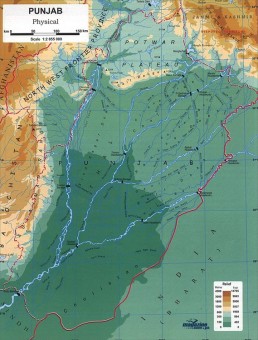
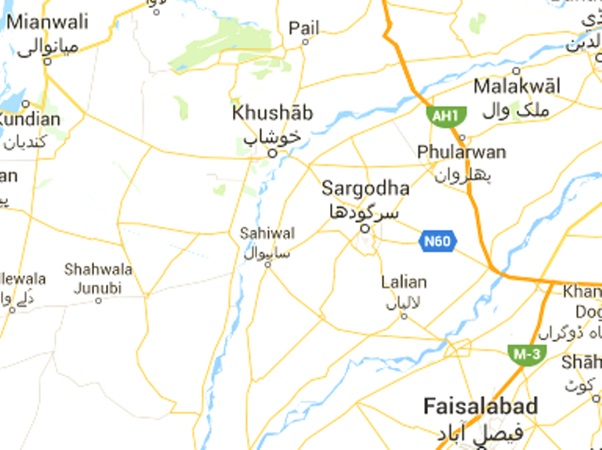
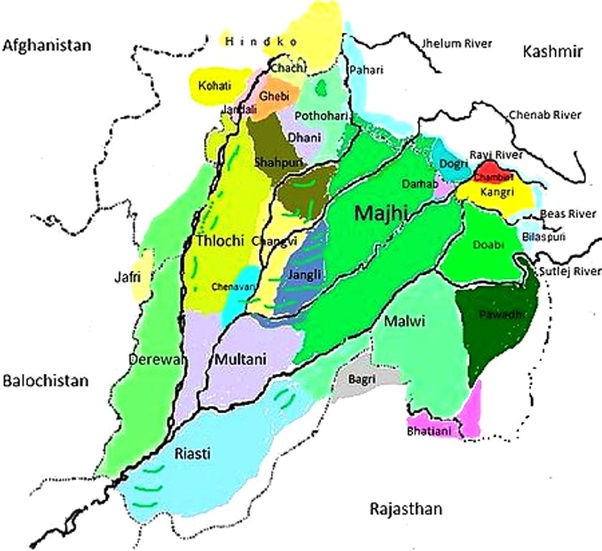
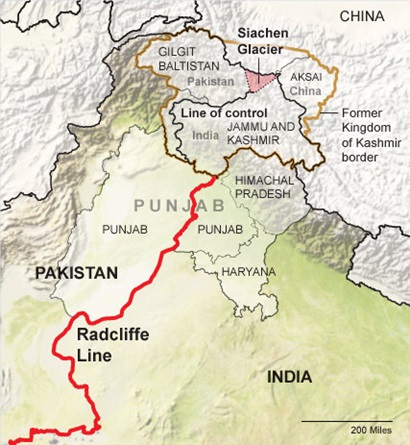
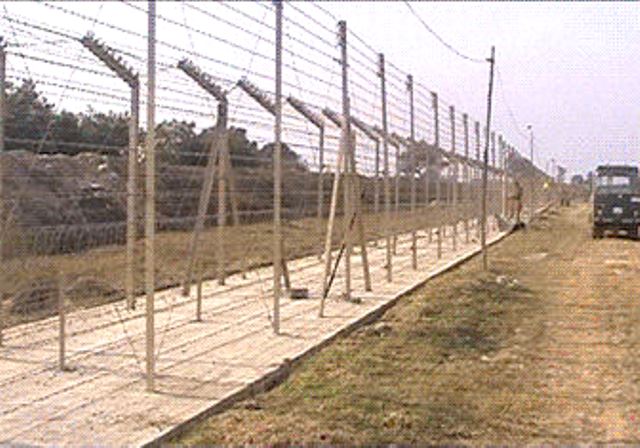
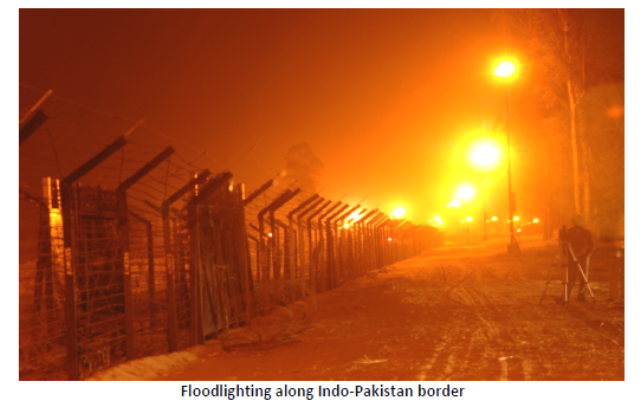
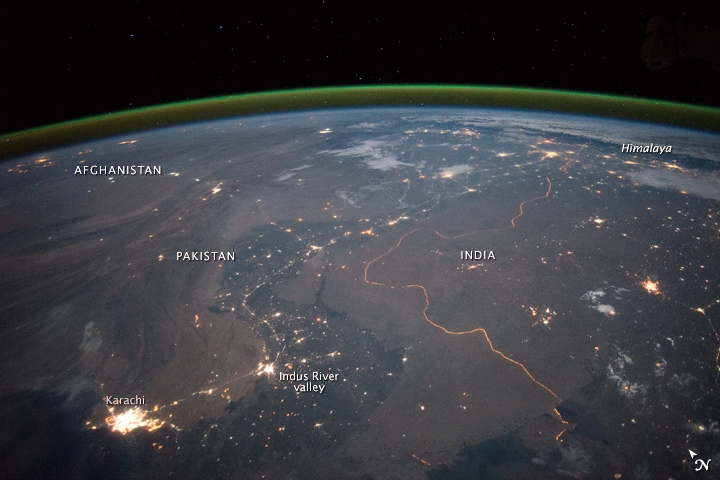
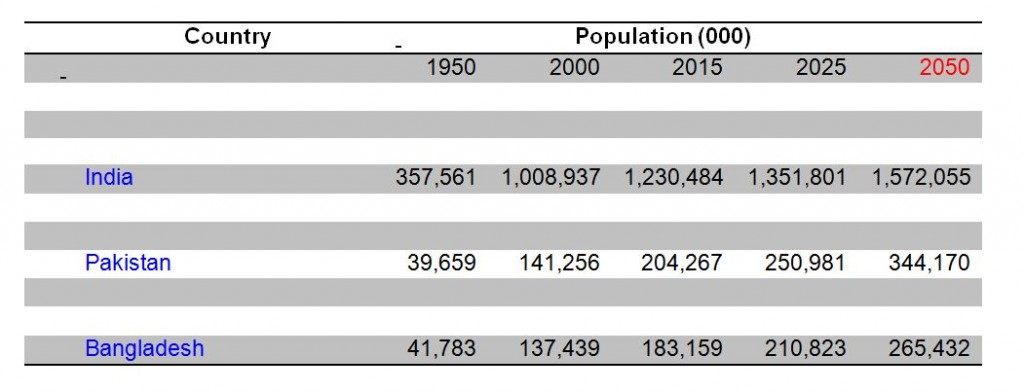






Diyan kami na katira
my web page penrose Condo showsuite
I am a bit of a story teller, and ”exaggeration”’ comes naturally to me….. WELL said sirji csm me
But once you cross all borders of existence
in a materialistically socially limited world
only then you realise
we are simply dust specks
magnified 500 times
as the eye magnifies
from this far off distance
I see
still see you 5 foot 7
and i am a wee bit shorter
in height and stature….
but
we must get out of the realms
of our constraints and imagination
then alone we will have no inhibitions
nor limitations
to know time changes every moment
it is the only constant
and
as per your above statement
I calculated your Time of birth
Sir You are paralleled
all now know
I am also a
devoted follower of you
Thank you
csm
Dear General Saheb,
A cause of the drifting apart could be that we have industrialised more rapidly, departing from agrarian leanings.
A.Kumar
Dear Surjit,
Let us not forget that it was Britain’s policy of ‘divide and rule’ that led to the partition of the country. Britain wanted it that way. Radcliffe can’t take all the blame. Under the circumstances I think he did a fairly good job in the time at his disposal.
I would suggest you read “Punjab Bloodied, Partitioned and Cleansed” by Ishtiaq Ahmed for a fuller picture.
However, the subject of your blog is different! You have touched a very pertinent point regarding large families across the border specially in their lower strata. That is where they get all their misguided jehadis from as you have rightly pointed out. India must not lose sight of the unrestrained growth in its own Muslim population!
Regards,
Harindar
Harindar ji,
Thanks.
We can not change history. Blaming the British at this stage does not help. The fact is that the most influential sections of our society actively supported the ‘Raj’ and the masses acquiesced. When you look at the numbers, the picture that emerges is astounding. A mere handful of Englishmen were able to rule over more than thirty five crore Indians!
What we need to do is to promote awareness, so that we move forward in the right direction.
With best wishes,
Surjit
My dear General,
Thank you very much for these mails of yours—-I enjoy going thru them & they are all very interesting read even though I don’t belong to the olive green family myself but my late father was an old soldier—–Maj.Gen. Rustom Zal Kabraji,AVSM,retd.—-He was from the Corps of Signals & one of the 1st Signal officers to command a mountain brigade & then a mountain division–also the 1st. Signaller to be COS of a command—-He retired in 1970 as Chief of Staff Southern Command Pune.
I was very interested & amused when I read your piece on Gen. Hanut——-I had met him one day in the 1960s when I was a young school boy in Mhow where my father was Commandant of what was then the School of Signals.
Gen. Hanut must have been a 2/lt. or a Capt. doing a course at the Infantry School—will tell you more about this meet later.
Keep the mails coming—they bring back some very nostalgic memories of my days during my father’s service in the armed forces–came across some very fine officers & men which will be tough to come across in our modern times !
Warm regards & respects,
Zal Kabraji.
ps–my father passed away in 2008 at the age of 92.
Sir,
I am delighted to get your mail. Gen Hanut was my spiritual guru, and I would be very happy to receive your write up on your meeting with him.
I have added your name to my mailing list. And if you like to post a piece on our blog, I will be glad to host it and share it with my friends. As a ‘fauji child’ you are a part of our extended family.
Do tell us more about your father. He retired when I was still a very young officer. But I am sure that my friends, especially old Signals officers would remember his illustrious service. Where are you settled?
Regards,
Surjit
Dear Madan ji,
Thanks. It is possible that I have over-stated my case. I am a bit of a story teller, and exaggeration comes naturally to me. As for the per capita income, Pakistan was always more prosperous than India. They inherited better land and a well developed canal system. But when the agrarian economy turned into manufacturing, India seems to have taken over. The following text is from an independent source:
Till 2006 in nominal basis and till 2008 in ppp basis, per capita income of pakistan was more than India. In 2014, GDP per capita of India is more than Pakistan in both terms. Per capita Income of India is $1627 and $5855 in nominal and ppp terms, respectively. Per capita Income of Pakistan in nominal and ppp terms is $1343 and $4736, respectively. World rank of India is 145 (nominal) and 125 (PPP). World rank of Pakistan is 152 (nominal) and 134 (PPP).Out of 33 Indian states/UTs, 24 states/UTs are richer than Pakistan.
Growth rate of Pakistan is estimated at 4.14% in 2014. India’s growth rate is estimated at 7.17% in 2014. During period 1980-2014, Average GDP growth of Pakistan was 5.02% compare to India’s 6.23% in same period.
Indian rupee was at 1.0288 INR per Pakistani rupee (PKR) on 2 Jan 1996. Value of Pakistani currency has fallen to 0.5221 INR per 1 PKR in 1 Jan 2011. Since 2011, PKR is moving up, and on 1 Dec 2015, 1 PKR = 0.6283 INR.
It is always a pleasure to hear from you. For one thing, you have no hesitation in disagreeing, and hold your own, always and every time!
Love,
Surjit
Dear Brother,
I address you as brother as I am a Shahpuri from Montgomery ( Sahiwal). We moved to dist Ferozepur when I was 8 years old. You will recollect your visit
to my house along with Thomas.
A very well written piece. Thank you.
PPS Gill
Bhai Sahib,
Wow!
Then one day, we must meet and speak in our mother tongue. It is a crude language; not as refined as Pothohari, but it is very expressive. And let us hope that we will meet soon!
Surjit
Remarkable compilation Sir,
Deep regards.
Soorkhan.
Sir jee,
Thanks.
Now we look forward to your account of the land of nomads.
Surjit
Sir,
It does not take long for a country to swing from one extreme to another. Mussolini turned Italy to dizzy heights. Then made the monumental mistake of joining Hitler. The Italians paid the price.
Indonesia was a miracle economy. And they are now struggling to keep pace with the world. Great Britain was said to be an empire on which the sun never set. And now they have quietly dropped ‘Great’ from the name of their country!
Pakistan was created with great expectations, as the ‘land of the pure’ For several years, their per capita income was higher than ours. Today they are desperately trying to battle with evil forces.
We do not know what the future holds for us. But if we remain balanced, we can be a force to reckon with, in just a few decades.
SJ
SJ,
Indeed!
Singapore mushroomed from nowhere to become a world class economy, with no resources. They don’t even have water!
Surjit
And in spite of all this, some radicals want to shift to Pakistan
and be a part of a “Khalistan” there!
Yashvir Tuli
1. Thanks. Being from Navy, I never get Geography correctly, as fortunately Navy goes by the Compass. Maps are really helpful. AAP NEIN YADASHTE TAAZA KAR DIEN. I was 11-12 years old then.
I made many mistakes in life and one of them was not ingraining my Mother Tongue Punjabi in my Children. My Mother Tongue is in two Punjabi dialects. One was ARBI-Gujarati Punjabi which has many common words with Arabic in my Mother’s Village-WARWAL-CHAKWAL-JEHLUM. The other dialect is akin to Shahpuri Punjabi of my Father’s side–TALAGANG-[RAWALPINDI¬ATTOCK-CAMPBELLPUR-JEHLUM ] and now part of new District CHAKWAK which was earlier part of Jehlum. And the are just 20 Miles are apart. Most people from CHAKWAL and JEHLUM are in Pakistan Army. One never meets them in trade fairs.
2. After Partition, the nationalist fervor took over my Father. He wanted us to learn Hindi and Sanskrit. But Punjabi was spoken at home, as my Mother was comfortable with. Having been subjected to so many languages–Urdu-Persian and English. And my Wife speaks Dera Ismail Khan Punjabi which I find it difficult to follow.
So I decided to speak Hindi at Home with Children to mitigate languages burden. But my Son at age 2 and 1/2 years was comfortable with Malayalam at Home in Cochin and playing with their Children and listening to their stories and he tells me today that he was OK with that. At same age my Daughter was comfortable with Marathi in Bombay. 3-4 languages formula is easily workable if Parents do not interfere.
Today they find it difficult to converse in Punjabi. I now lost Punjabiat to Americaniat, and overtime Punjabi culture would vanish, ageneration down the line.
3. But what hurts more today is GANGA CIVILIZATION NEIN INDUS CIVILIZATION KO KHATAM KAR REHAIN HAIN. Indus Civilization has suffered most invasions in human history and therefore our Leadership who comes mostly from BIMARU Hindi Belt think is, that the best way is to reunite with Pakistan. They cannot manage India’s Diversity.
A very poor comprehension of Indus Civilization and Ganga Civilization is hell bent to annihilate it and with it the Punjabiat. South, West and East have never experienced such repeated holocausts.
But what Delhi and Nagpur do not understand, is that some thing similar but opposite has happened in Pakistan Punjab. There was another similar Video from Pakistan. Today’s Pakistani-Punjabi’s Children are living AWADH/UP Urdu Culture. Poor Parents Punjabi is not understood by their Children, And those who came from India are still referred to as MUJ—meaning Refugees.
And Pakistani GENXT never see any compatibility with Indians but conversely Indian GENXT wants friendship at any cost because, their DNA has been modified by Ganga Civilization–education and jobs are important?????
PUTTA NAHIN KISS DUNIA MEIN RETEIN HAIN HUMARE HUKMARAN.
1893 National Census 14 Volumes Orignal Report needs to be revisited at National Archives-special Wing
With best regards,
Commander Prem P Batra retired
Sir,
Thanks.
I am in total agreement with you.
What can be expressed in the mother tongue can only be said in that very special dialect. If translated, it loses some thing. If that was not true, we would be able to translate all our scriptures, and the world would not need so many languages!
I hope we meet some day, so that we can speak a bit of ‘Shahpuri’ dialect!
Surjit
Dear Friend,
A few days ago, a friend sent me a Pakistan TV clip, concerning a man who wants to complete a century of children. He lives in a village close to Sargodha and speaks chaste Shahpuri dialect of Punjabi. Since that is my mother tongue, I played the two minute recording several times, just to hear his diction. However, when I mulled over the import of what I heard and saw, it occurred to me that the people living in that part of Punjab are no longer the same as us. During the last seven decades, the two civilizations have drifted far apart, and are headed in different directions.
A link to the post on our blog is given below:
http://amolak.in/web/on-the-other-side-of-the-radcliffe-line/
Amazing story!!
Yamuna
Dear Ms Yamuna Govindan,
I have been reading some pieces written by you, and it is apparent that you have lived a very rich life, globe trotting with your husband.
In case you like to share some experiences with our readers, do send us a piece.
Surjit
PS
You have the most imaginative mail ID!
Dear sir,
It is an eye opener. may god save the country.
Lt col A.Sundaresan(retd)
Hi Surjit,
Yes, difference in cultures over time iis obvious. All of us who have
migrated from what is now Pakistan still yearn for the old land. But
even if we are able to visit the land, will we be able to recognise
what we hold so dear in our memories?
Regards,
Surendra
Sir jee,
It is always a great pleasure to hear from you. The min’s eye goes back to 1967, when we were just married, and Sweetie was born.
I agree with you. I no longer wish to go back to my place of birth. I find that the youtube clips can show one things which travel may not be able to show. Recently, my children went abroad. The weather turned bad, and so they just stayed put in their hotel…and saw the whole city on their laptop. I wonder why they could not do that sitting right here!!!
Best wishes to Madam and love for the (grand) children…Bhaiyoo and company are too old to be called children now!
Surjit
Thanks Sir and warm regards!
Very educating and nice article!
Sudhir
Thanks for sharing.
Raj
How disturbing!
Srimurti
Dear Surjit
EXCELENT ANALYSIS VERY VIVIDLY EXPRESSED FWDING TO MY CHILDREN& G CHILDREN THANKS 4 SHARING GAGI
Colonel Randhir Singh Dhillon Marg Patiala
Dear Surjit,
I have always found your blogs/emails interesting and full of information. Last December I was invited to talk to the IDBI Capital on “Leadership”. I quoted from your mail on late revered Gen. Hanut Singh.
Coming to your this mail, “On the Other Side of Radcliffe Line”. You would be aware that in all Abrahamic religions ie, Judaism, Christianity and Islam, the belief is that on the day of judgment that religon with largest number of adherents will be given entry into Paradise. Correct me if I am wrong. No wonder this simple soul is making his ‘small’ contribution to the effort.
A rather belated but nevertheless a sincere Happy New year.
Vijay Madan
Dear General,
Thanks for the kind words.
Yes. The faith one inherits has a profound influence on a person. An overwhelming majority of human beings stick to the beliefs and religious practices of their parents. It seems it takes too much effort to break away from the ‘accepted’ value system.
I am in complete agreement with some people who suggest that the child should be taught the basic tenets of ALL faiths, and he should be allowed to follow the dictates of his own mind. In the army, some of our units follow the MMGC pattern and I have seen it work. I consider myself lucky to have been born into a secular country.
Regards.
Surjit
PS
General Hanut was a great man. I learnt a lot from him. He was my spiritual guru.
Thank you Sir for sharing.
regards
Hari
Hari,
It is always a great pleasure to hear from you…even if it is just a brief one-liner!!!
Surjit
Yes, you are so right.
Surrinder Nakai
A very nice article, Very beautifully written.
Thanks.
Regards.
Vivek
Surjit
Thanks for sending this.
I am a friend of Joseph Thomas who went to Lawrence School, Lovedale some years ahead of me.
I was born in Kenya as was my father. My paternal grandfather migrated to Kenya sometime around the turn of the 19th Century to the 20th, as did many Indians who were encouraged to migrate by the Brits.
My grandfather was from Shahpur. My Dad went to India as a teenager, specifically to Shahpur where he learned Urdu.
I don’t know how much of the dialect I will understand but I’m going to listen to it right now.
Best regards,
Anil Madan (Bwana)
Dear Anil Madan,
It is a small world…and the Wright Brothers have made it smaller! There was a time when it used to take days (and even months!) to sail to England, via the Cape of Hope. And now, one is there in just seven hours!
I can see that you have been globe trotting like millions of people. If your travel brings you to Chandigarh, do look us up. A friend of Joseph Thomas is a friend of mine! I have known him better than my own brothers!
Surjit
Dear General,
Thanks for a very nice write-up.
Reminds one of his roots.
Best wishes,
N K sapra
Narinder,
Our roots…I think we have been uprooted for ever. Now there is no urge to go back, even for a brief visit. That land has changed altogether, and the change is irreversible!
Surjit
Respected General sahib & dear Surinder Singh,
Too bad … Pathetic situation in areas we left in 1947. No way to improve there. Islam in many countries has changed their rules/ laws, not in Pakistan going just backwards and will effect neighbours also.. .
Since many generations we had been in Farooka/ Silawali near Sargodha town . I was also born there in Farooka. My father Lala Wazir Chand Minocha had written clearly …in early May 1947… that : he had read a lot of History, but never in the History of Mankind a Raja ( King of England ) forced people from East to go to West side of lands , & the other way ; just on basis of Religion. He had predicted this would lead to chaos in the world. His writings are preserved & known to our elders in our family. He had pointed out the evil design of J L Nehru helped by Jinnah & “Raja” sitting far away for greed of continuing domination plus Gaddi ; POWER at any cost of future generations irrespective of any sufferings that might happen.. Well known predictions of imminent doom, before partition .. no one cared at the helm of affairs ,for consequences those days.
Part of writings before partition of Bharat. What kind of Independence from Centuries of brutes, looters , rapists , & killers of humans in our lands from outsiders ?
Care for humanity is worsening every year at a faster rate than earlier. Now the elected ones are copying the British & Moghal ways too , why too much greed , corrupted minds continuing all over ; area under Bharat reducing every decade ? Still we do not learn lessons from History of South Asia. Where are our Gurus preaching Peace ??
Satish Manocha, Bengaluru
Satish ji,
You have said a lot!
Yes, the quest for power can make people go mad!
Jinnah and Nehru are both to blame for our partition. Radcliffe had nothing to do with it. He merely lent his name to the ‘commission’.
There is a film song which says it all:
“Maana toofan ke aage; nahin chalta zor kisi ka…
Maujon ka dosh nahin hai, yeh dosh hai aur kisi ka.
Manjhdhar mein nav jo dole, to maanjhi use bachaaye
Maanjhi jo naav duboye, to use kaun bachaaye?”
Ours is a case in which the fence ate up the crop!
Surjit
Dear Surjit,
One of my Regimental officers also fondly talks of Shahpuri dialect.
Amazing, Mohammad Yusuf’s women don’t mind the labour!!!
May be the Muslim Majlis of Pakistan gives him the title of Mard-e-Jahan !!!
Regards
Brig(Dr) BD Mishra
Dear Course mate,
Yes. I was also surprised at what the (seventh) wife said! She does not seem possessive at all!
And the son…his words also left me dazed. There is an acute shortage of food and space in the house, and yet he wants his father to continue with his mission to complete the century!
Surjit
Thank you Sir
Kulbir
As I was going over this piece again, I noticed that a similar thing happened in Korea. After the end of the Second World War, they drew a line along the 38 degrees latitude, called it ‘The 38th Parallel’ and that became the boundary between the two parts of Korea: North and South. The two new countries followed different economic policies, and after seven decades, two entirely different civilizations have emerged. North Korea is poor, the citizens have very little freedom and they have been told by their rulers that it is essential for them to hold an enormous stockpile of nuclear weapons. South Korea, on the other hand is listed as a ‘developed’ country.
Amazing how much difference a manmade line on the map can make!
SUrjit
Interesting story. However, I don’t see why Radcliffe should be blamed for the partition of Punjab and Bengal. That was a decision taken by the leaders of India, Pakistan and Britain. Radcliffe was given the task of helping to implement that decision. He did a fine job and the border has stood the test of time. Absent the Radcliffe Line and we would have endless bickering over where the border should be.
As you have mentioned, Radcliffe was so upset with the partition riots that he refused his fee (worth Rs 50 lakhs today), burnt all his papers, never talked about his work in India and never visited India again.
J,
I am in complete agreement with you. Sir C Radcliffe merely lent his name to the report. In fact I was surprised to find that the names of the four members of the West Pakistan Boundary commission are not even known. The work had been done by the Indian National Congress and the Muslim League. I doubt that they even travelled along the so called Radcliffe Line. And Indeed Sir Radcliffe must have spent those five weeks in Lahore, Delhi and Calcutta.
I have gone through his bio-data. He was, without doubt a man of high morals. His credentials are impeccable. His decision to return the money due to him raises his stature by several notches.
Surjit
this information is an eye opener. the landless man’s desire for 100 children is due to ignorance on account of educational facilities. this condition may be one of the factors for the country heading towards worst economic disaster. may god save the country. sir c radcliffe may be squirming in his grave and british who is the sole cause for this enigma will pay for it for a longtime.
Dear Sunderesan,
I agree with you.
As for Sir Radcliffe, he was appalled by what he saw and heard. In fact so profound was his grief, that he declined to accept the fees paid to him for the job. He returned a tidy sum of money to the government.
So, one can’t really blame him. The partition is a creation of our own leaders: on both sides of the border.
Surjit
A well written article. Hope that wisdom prevails on such people who just want a hundred children. If the situation prevails Pakistan will runout of resources and fill fall into the hands of the jihadis.
Dear General,
Thanks for the kind words.
I am waiting for a piece written by you for our blog. The other day, I learnt that you are from Sanawar. That being so, I take it that you go to visit your School. Please drop in on the way.
Best wishes, for Mrs Deswal
Surjit
A very nicely told tale with facts. The last bit is very disturbing, wherein the population rates of Pakistan exceed India and Bangladesh.
As rightly brought out, it will have a major fall out on resources — Imagine a householder who is a working class landless labour, requiring 50Kg of “Atta” or Flour for daily maintenance of his brood. At some point, Pakistan will run out of resources and the youth both girls and boys will become hunting ground for the Masood Azhars of Pakistan to radicalise and influence their minds and feed them into the Jehad Factories of IS and JeM.
Unless Pakistani “awaam” changes its outlook through literacy and education, India has a major problem at its doorstep.
Neeraj,
An unstable Pakistan is bad for us. We have a long land border with them, and no matter how much we seal it, the line is not impregnable. The economics makes it porous.
As things stand we have to learn to be vigilant, at all times.
Regards,
Surjit
It is so very true. Its a great article – its not that the country (India) did not make its fair share of mistakes but – the nation was not born out of hatred for anyone and that has been one of the thing defining it still today.
Secondly – please do not take me to have any political affiliations but I put this across whenever and wherever I can – our central leadership (barring one or two bad eggs) has been exceptional – and without that we might not have fared any better than this…
…and to end this comment – I still feel, we (Indians) are having a growth rate more than that should be permitted…
SS,
Thanks. I am in complete agreement with you.
Ironically, the rich have the minimum children! Fertility is inversely proportional to economic prosperity. In India, the Parsis are the most affluent, and their numbers are diminishing.
Yes. Democracy has taken firm roots in India. Our generals have been discreet. And as someone said,
“Democracy is the worst form of government; except when compared with all others!”"
Regards,
SS